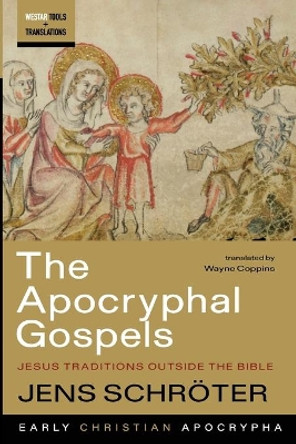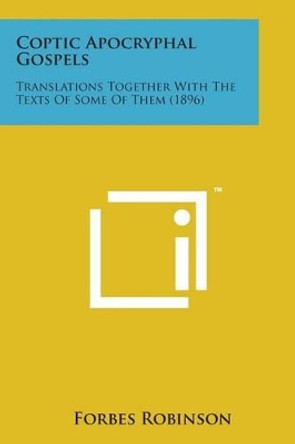Description
About the Author
Mark Goodacre is Associate Professor of New Testament and Christian Origins, Department of Religion, Duke University, North Carolina, and general editor of T & T Clark's Library of New Testament Studies. His most recent books include The Synoptic Problem: A Way through the Maze (T & T Clark, 2001) and The Case Against Q (Continuum, 2002).
Reviews
Many books have been published on the Gospel of Thomas since its discovery in 1945. One of the most recent publications on the issue is Thomas and the Gospels. The Making of an Apocryphal Text by Mark Goodacre. The author is well known as an opponent of the Q hypothesis. He presented the results of his research in such works as: The Synoptic Problem: A Way Through the Maze (2001) and The Case Against Q: Studies in Marcan Priority and the Synoptic Problem (2002). As an opponent of the Q hypothesis, Goodacre consequently opts for the late date of the Gospel of Thomas (he dates its final version to AD 135) and its dependence on the Synoptic Gospels. In the book under consideration, the author is trying to prove these claims on the basis of "verbatim agreement" between the Gospels, which for him is a way of breaking the deadlock in Thomasine scholarship. Thomas and the Gospels consists of the following ten chapters: 1) "First impressions" (pp. 1-25); 2) "Verbatim agreement between Thomas and the Synoptics" (pp. 26-48); 3) "Diagnostic shards" (pp. 49-66); 4) "Matthean redaction in Thomas" (pp. 66-81); 5) "Lukan Redaction in Thomas" (pp. 82-96); 6) "A Special Case: Thomas 79 and Luke" (pp. 97-108); 7) "The Missing Middle in Thomas" (pp. 109-127); 8) "Orality, Literacy, and Thomas" (pp.128-153); 9) "Dating Thomas and the Gospels" (pp. 154-171); 10) "Secrecy, Authority and Legitimation: How and Why Thomas Used the Synoptics" (pp. 172-192). There are two reasons that led the author to formulate the opinion that Thomas is dependent on the Synoptics. Firstly, Goodacre underscored the need for re-establishing the significance of the three extant Greek fragments of Thomas (P. Oxy. 1, 654, 655) which reveal similarities with Mark, Matthew and Luke (in all possible combinations). Secondly, he pointed out that all the strands of Synoptic writings are present in the Gospel of Thomas. This is important, because only if one indicates the redactional features of the Synoptics in Thomas, can we actually know that Thomas used the Synoptics and not vice versa. Although there are also other important points in this book, I would like to focus on the "verbatim agreement", which is a Mark Goodacre's pioneering idea and a novel attitude with regard to the Gospel of Thomas, as Patterson once wrote.1 His approach, however, is not precise as it is exposed to the large degree of subjectivity, even in regard to fragments preserved in Greek, and the author is aware of that. Goodacre gives the six examples of logia in the Greek Gospel of Thomas, which have parallels in the Synoptics: Thom 26 (Speak and Log), Thom 3.3b (Kingdom within), Thom 4.2-3 (First and Last), Thom 5.2 (Hidden and Revealed), Thom 39.3 (Wise as Serpents), Thom 31 (Jesus in Nazareth). Only in the first case the similarity is striking. The phrase in the Thomasine version is as follows: ?a? t?te d?ass???e?? ??ssa??e?? t? ???f?? t? ?? t? ?f?a?? t?? ?de?f?? s??. It has parallels in Matthew 7:5 and Luke 6:42. The link between these texts lies both in the verbatim agreement (thirteen words in common with the Lukan version, which differs only in the positioning of ??ssa??e?? at the end of the sentence)2 and in the presence of such rare words as ???f?? and d?ass????. Nevertheless, in other cases the argumentation is not so convincing. Goodacre notes that the verbatim agreement oscillates there from nine to seven words. However, a closer look at the respective verses reveals that he also includes articles and emendations that have been called into question by other scholars. Take Luke 17:20-21 as an example. The alleged common phrase is ? ssas??e?a t?? ?e?? ??t?? ??? ?st??. However, this phrase is heavily damaged in the Gospel of Thomas: ? ssas[??e?a t?? ?e??] ??t?? ??? ?st?(...) (Thom 3.1-3). Yet, indeed, one can notice a fourword verbatim agreement. Even if this emendation is correct, there are some additional problems, as well. Goodacre quotes opponents who think that similarities in general can come from oral tradition, pre-Evangelist witness, or be a result of later harmonization. The situation is far more complicated in regard to the texts known only from Coptic textual witnesses, because the comparison is made between the Greek text of the Synoptics and the Coptic translation or retroversions of the text into Greek. For instance, only in the Coptic fragments of the Gospel of Thomas has Goodacre found phrases which supposedly betray Matthean style as "the kingdom of heaven" (Thom 20,54) or "out of the mouth" (Thom 14). Taking that into account the question is whether the presence of these and similar expressions is enough for us to speak about literary dependence between the texts. For Goodacre, the answer is yes. For others, no. Trying to convince the reader, Goodacre recalls an example from student life (the plagiarist's charter). He writes: It is sometimes said that the absence of agreement in parts of certain Synoptic-Thomas parallels indicated Thomas's ignorance of the Synoptic saying as a whole. The difficulty with this line of argument can be illustrated from teachers' experiences of plagiarism in student work. While from time to time unwise students plagiarize an entire essay from the Internet, it is far more common for students to plagiarize only parts of essays. When the students in question are accused of plagiarism it is no excuse for them to point to the amount of material that they have not taken over (pp. 54-55). We can ask if this comparison is adequate. If one were to take the stance that ancient culture was far more oral than ours (as, for instance, J. Dunn assumes) perhaps an appeal to the game known as "Chinese whispers" would be a better explanation for the differences in common phrases. In Mark Goodacre's view, however, there was an infiltration between orality and literacy in early Christianity. Thus everything depends on how somebody sees this period. To sum up, despite not always convincing argumentation connected with the fragmentary evidence available for Thomas, the Thomas and the Gospel by Mark Goodacre is an interesting proposition. The great advantage of this book is that the author acknowledges limits of the research method employed for the study. The author clearly indicates emendations, cites contrary opinions and discusses them. Thanks to this approach a reader can easily follow the scholarly debate in the field of Thomasine studies. Not only the topic, but also the clarity of presentation and vivid language all together provide a stimulus to read the book. * The Bible Anuals *
Not only has the Gospel of Thomas been a contentious subject within New Testament Studies, it has also captured the imagination of those reading and studying early Christianity at the popular level - sometimes being described as the Fifth Gospel or the earliest witness to the historical Jesus. In this articulate and acutely argued monograph, Goodacre makes a persuasive case that the writer of Thomas was dependent on the Synoptic material as we know it. In Chapter One, Goodacre briefly introduces the reader to general issues within Thomasine studies - specifically regarding Thomas's relationship with the Synoptics. After discussing some general arguments for and againstThomas's independence from the Synoptics, he turns his attention, in Chapters Two through Six, to specific textual arguments. He begins here with verbatim agreement between Thomas and the Synoptics. This, according to Goodacre, shows a relationship but not necessarily the direction of that relationship (p.49). To establish this direction, Goodacre, in Chapter Three, introduces the idea of 'diagnostic shards,' - 'the appearance of distinctive redactional features of one text appearing in another' (p.49). The following three chapters deal with these diagnostic shards appearing in Thomas from Matthew (Chapter Four) and Luke (Chapters Five and Six). Goodacre then turns to broader argumentation. Chapter Seven deals with the 'missing middle' in Thomasine passages where the writer of Thomas makes use of a Synoptic periscope, but in the editing process removes its middle. This phenomenon appears in multiple types of materials and the awkwardness that this editorial technique produces, Goodacre suggests, may indicate that the author of Thomas was working from memory. Chapter Eight deals with the issues of orality and the role that Thomas has played in that discussion. Chapter Nine establishes a date of roughly 140 for Thomas, based on its apparent allusions to the destruction of the temple (Thom. 71 and perhaps even the Bar Kokhba revolt (Thom. 68). In his final substantive chapter, Goodacre argues that the reason the author of Thomas made such substantial use of the Synoptics was to lend authority to his secretive, and divergent Gospel. Goodacre concludes with a plea to study Thomas (and other non-canonical sources) on their own terms, and not just as they relate to the study of the Synoptic Gospels or the historical Jesus. The rigorous and responsible research that went into producing this study, along with the enjoyable and engaging prose, makes it well worth purchasing. Goodacre has produced an original and excellent evaluation of Thomas' relationship to and use of the Synoptic Gospels. -- Andrew Kelley * Expository Times *
Book Information
ISBN 9780281067763
Author Professor Mark Goodacre
Format Paperback
Page Count 224
Imprint SPCK Publishing
Publisher SPCK Publishing
Weight(grams) 373g









